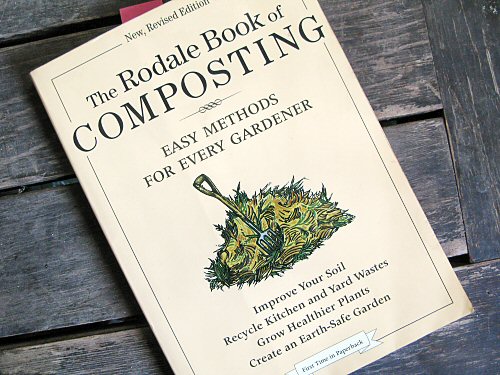
Winters on the tiny farm have always been a time for research and a bit of book learning. My first two seasons were crazy for reading, especially the winter before Year 1, when I had four months to pick up enough, from zero knowledge, using books and the Net, to map out the initial one-acre plot, order seed, get some gear, and “pass” the initial organic certification inspection, in order to start the market garden that spring. That was fun!
Over the last six years, though, a curious thing happened. My original urge to find out how everything worked, to soak up endless technical detail, full of labels and scientific explanations, died down quite a bit—often I’d rather watch a squash decay than read about it…
It seemed more fun to find specific, practical solutions on the farm: how to fix this or improve that. At the same time, I’ve become more and more aware of the growing process as a whole (and really, how relatively little I have to do with it…), not so concerned about its parts. It’s a little hard to explain, though real easy to feel. Maybe it’s just…a phase!
MEANWHILE, this year, Year 7, is a bit of a shake-up. Compared to the old farm, the new farm is pretty bare-bones. One big change: I don’t have the tons of well-aged, almost completely composted cow manure that was available there.
Every year, I made manure-based compost in 50′ (15m) windrows, incorporating crop residue and culled veggies, turning it with the tiny tractor, checking it out, but it wasn’t CRITICAL to fertility. A fall spreading of fine, on-farm, composted manure always did the trick!
Now, with no on-farm animals yet (chickens to come first!), and no prospect of generating huge amounts of manure, compost that relies more on plant sources will be my new friend. Composting and green manure are on my mind.
New necessities require…new learning! So along with everything else over the last 2-3 months, there’s been a more intense hitting of the books, thinking over, chatting, scouring the Net. It’s not exactly like starting over, but it’s definitely…FRESH. I’m excited. More as it happens!




Mike,
A great way to green manure the new farm, the “No Till Revolution” from Rodale.
One of my favorite old book is “the complete book of composting” circa 1969…over 1000 pages of everything you could ever want to know about composting, the history, science and practical application. I even did a book review of it on my blog. Gotta love compost!
Green manure is someting I am just getting into, so far it has been very successful. I especially like buckwheat because hubby’s bees go crazy for it!
Good luck! Kim
Paul R: No-till (conservation tillage) is really interesting, a little harder to consider on this in-between 2-acre size, where we don’t do tractor cultivation, but it’s also a little big for completely hand work.
Kim: Thanks! That sounds great. I read your review, and looked up the book. And I found that the book in the photo here is, well, a descendant of yours. On Amazon it said, “[The Rodale Book of Composting] is an update of Jerry Minnich and others’ The Rodale Guide to Composting ( LJ 5/1/79), which itself updated J.L. Rodale’s Complete Book of Composting (Rodale Pr., 1960. o.p.).” But your book is 1,000 pages, and mine is just under 300. Where’d the other SEVEN HUNDRED pages go in the updating? The type in mine isn’t that small… I’ll look around for a copy!
I love buckwheat, and it’s so fast, but the seed here is really expensive. I’m now particularly looking into legume green manures for nitrogen-fixing, clovers, vetches…
Green manures are OK and can really add bulk to the soil but animal waste is in my opinion without equal. I particularly like to use aged chicken bedding in lasagna gardening. It is a great way to control weeds and start new beds and is amazingly labor efficient. So better get some chickens again. I have heard rabbit waste is good too.
Seems to me Rodale was pretty insistent on incorporating some manure in compost. I will be very interested to see how your vegetable manure compares to what you were using in the past.
Yes, I have no illusions about the power of manure–manure is great! By comparison, figuring out green manure is a lot more complicated. Nitrogen is the easily-depleted, main nutrient that our modern agriculture is concerned a lot about. So, we look to add N in sufficient quantities. BUT, it also seems that, given the right balance of macro and micronutrients in a healthy, active soil, the measurable quantity of N needed for good growth, good yield, can be MUCH lower than the usual recommendations, from both conventional and organic sides. It’s almost like there’s a…pro-nitrogen conspiracy! :) Of course, I have so much more to learn first-hand, and I’ll soon find out!
This is a great book. I’ve actually just passed this book onto my mother to help her with her composting.
Hi there
That book sounds as though it might be worth purchasing.I have just noted the age of your post so I guess by now your compost is well on the way.